Regression to the mean
Rejecting the future does not prevent it; it only makes the journey that much harder
I don’t think so I can write. Instead, I write so I can think.
Thinking requires — for me at least — a calm and clear head. I need to feel comfortable in the now so I can explore the then.
There is some occupational hazard to always thinking about the future: the clearer it looks, the fuzzier the present seems, because, in imagining that future, you consider all the steps between here and there — as well as all the pitfalls. So much needs to go right; so much can go wrong. It’s quite the responsibility to actually care.
When I first met our youngest child, then two-year-old Abebu, at an orphanage in Awassa, Ethiopia in 2010, I saw her run across a courtyard. She was not in great shape physically, but, being younger than her biological sister Metsu (whom we were also adopting), she was less damaged by the accumulated combination of poor diet and parasites. Metsu, you could tell, was starting to break down, which was probably the primary trigger for her birth mom’s decision to send them to a new life in America: she could see the path Metsu was on, and the odds weren’t good.
Abebu and Metsu’s birth mother sensed an inevitability, and so made an inconceivable call — almost Sophie’s choice-like: As she told us, she would focus on caring for her two older kids by her first (deceased) husband, trapped as she was in her small farming circumstance now without her recently deceased second-husband (and birth father to our girls). She felt she could provide for two — not four, and so she chose.
On our side, recall that this was the time of the Great Recession, so our financial now was looking pretty bad, even as we maintained optimism about the future (I was then only in my late 40s).
Our call was mixed between the material and the personal: we could either save our dream house, built just a few years earlier but now worth half as much (not so with the mortgage, mind you) or we could take the financial plunge and adopt these two sisters — an act of either supreme optimism or sheer stupidity (or both). That call had to be made because we were aging out of the window for international adoptions.
In short, mortality beckoned.
We chose the girls and lost the house.
It was the right call, but it was immensely consequential for parents and kids alike, triggering all manner of downstream inconceivables for this father.
Still, despite the tumult of that time, I had a surprisingly clear head in that moment. When I saw Abebu scoot across the orphanage courtyard, she had such an effortlessly stride, which I immediately admired, being then still a long-distance runner (I bike now). I also witnessed Metsu’s blazing short-distance speed whenever it seemed like Abebu was headed for trouble and needed immediate rescuing, which Metsu instinctively did — almost like a bodyguard.
In both instances, their flawed-but-promising now signaled a future that I could imagine; it’s just that there were so many steps between now and then, and many of them were intimidating to me, because I knew they would force change and evolution upon me in ways that would be stressing but also empowering.
Adopting them, despite the circumstances of the moment, seemed like the right challenge, life purpose, mission … whatever. I could imagine smooth Abebu running cross-country and hair-trigger-fast Metsu playing some ball sport (turns out it was soccer). I could just feel that future off in the distance, and I was intrigued by what the journey would demand of me and mine.
Again, the challenge felt about right, and what was I looking for in life then? Early retirement? A really expensive car? The dream house we were in the process of losing?
And you may find yourself living in a shotgun shack
And you may find yourself in another part of the world
And you may find yourself behind the wheel of a large automobile
And you may find yourself in a beautiful house, with a beautiful wife
And you may ask yourself, "Well, how did I get here?"“Once in a Lifetime,” Talking Heads, 1980
I knew how I had gotten there; I just wanted to build something bigger and better — something transformative for all of us parents and then four-becoming-six kids. I wanted that lifetime of anticipation of an unknown that I imagined I could, with the help of others, shape into a future that I would later deem worth creating — worth the sacrifice that was, in the end, no sacrifice whatsoever but merely locating myself in a life of my choosing..
I could tell then it would be a struggle but — again, for me at least — the right kind of struggle: the right mix of a stressful now and a promising then. Metsu and Abebu were the final, clarifying pieces of the Barnett family project, as far as I was concerned.
Why feel the need to write that today?
Both girls are reaching adulthood in the near future, so I suppose a certain empty-nesting dynamic looms.
Then again, I am, like many of you, experiencing a lot of dread regarding this election. On one side, I see an optimistic take on a future; on the other, I spot a sense of horror over things perceived as going wrong. As such, neither side can see the other in a shared future — the existential “threat” of it all right now.
Those shared fears, however diametrically opposed, prevent me (and I imagine a lot of you) from thinking clearly and confidently about the future, as there is such a huge wild card in the making and it’s only days away from revealing itself.
I always say that America gets the political leadership it deserves — and I suppose both sides fear the answer to that question right now.
I guess I keep coming back to the turning point in my life that was adopting Metsu and Abebu because it was similarly apocryphal for our family — a genuine no-turning-back point.
Does America rejoin the world at this moment of great stress and provide genuine global leadership (what I call our market-making role and responsibility) or do we retreat into a sort of White Christian nationalism and all that portends?
Both sides, I sense, fear a clear tipping-point outcome here.
Trump wins and the White Christian nationalism impulse prevails for as far as the eye can see, preventing that “dreaded” multicultural future that sees America becoming more like the rest of a world (others) — that, I would argue, it is thereupon more capable of leading by the power of its continuing integrating example (my sense of America’s essence).
Harris wins and White America’s descent into majority-minority status (Good and inevitable? Or horrific and preventable?) is sealed by a Democratic Party that’s nominated a Black Man (2X), a White Woman, and a Black-Asian Woman in four out of their last five national elections. Cue the upcoming Millennials and Zs and incrementally usher the Boomers and Xs from power.
When we adopted Metsu and Abebu, coming not long after Barack Obama’s seemingly transformative rise to the presidency, it felt like accepting an inevitable future. Now, I guess, I feel like that future is more up in the air — hence my profound anxiety about our immediate prospects as a family.
[And yes, that anxiety is fueling our sense of wanting to return to Wisconsin — our imagined safe harbor of my and Vonne’s youth.]
I get that both sides feel the same existential anxiety: How can I live and thrive in an America that seems to reject who and what I am?
I can’t un-gay or un-color my kids. And nobody is getting cut from my team.
Here, we find ourselves dealing with the basic question that drives all of political philosophy: Are humanity’s journey to happiness a truly singular path or one of infinite diversity?
If singular, then, once that code is broken and appropriately parsed out by a sub-group thereupon destined to lead as an elite, you are headed toward some form of authoritarianism that “justifiably” mandates and enforces the “right path” for all.
If infinite, then the experiment and the search for the right mix never ends, and thus pluralism must reign supreme, despite its many flaws, detours, tumult, and transformations.
On one side, we have a public that cannot imagine living in a country that no longer looks like it and, by doing so, fails to confirm all their beliefs and life choices.
On the other, we have a public that cannot imagine a future that demands the suppression of their identities — however they may choose to express them.
Again, both sides sense profound rejection in the making — a sense of hell no! commensurate with civil strife vibes.
And, you know, I feel as trapped — I guess — as those on the Right who see their ideal White Christian nationalist America disappearing before their very eyes.
I have made my choices and they cannot be reversed, and so I feel a bit frozen by this moment of looming decision.
That was the personal and professional shock for me back in 2001 — or more specifically on 9/11: I was knee deep imagining a future world that saw me racing between the World Trade Center in NYC and the Pentagon in DC. So, when both were hit, it all felt oddly direct and personal — truly existential (our inescapable word of now).
And yet, despite all the tumult and uncertainty unleashed by that day, those events drove — quite deterministically — the next decade or so of my life (and positively so, I would judge in retrospect).
And maybe that’s my mind looking for a way ahead in case my side loses this election. Being a contrarian by nature (“Doubting Thomas” my Dad always called me), I prefer being on the outside, agitating for change.
I guess I just fear the near and mid-term stress that path will impose upon my loved ones. No, it won’t kill them, and, yes, it will make them stronger. It’s just that I’m basically in the business of trying to find a smoother path, and, so, America choosing to delay that journey/destination by a willful retreat into a past that is — frankly — unrecoverable … that is truly depressing — a self-inflicted wound that baffles me on some level.
Boo hoo! says my inner grand strategist. Don’t you want to live in meaningful times?
Hmm. Hard to say no, and yet, getting a bit harder to say yes at 62.
But there again, past choices provide: with two teenagers still in the house, one must remain a happy warrior no matter the looming outcome.
So I guess it’s chin up and keep writing.




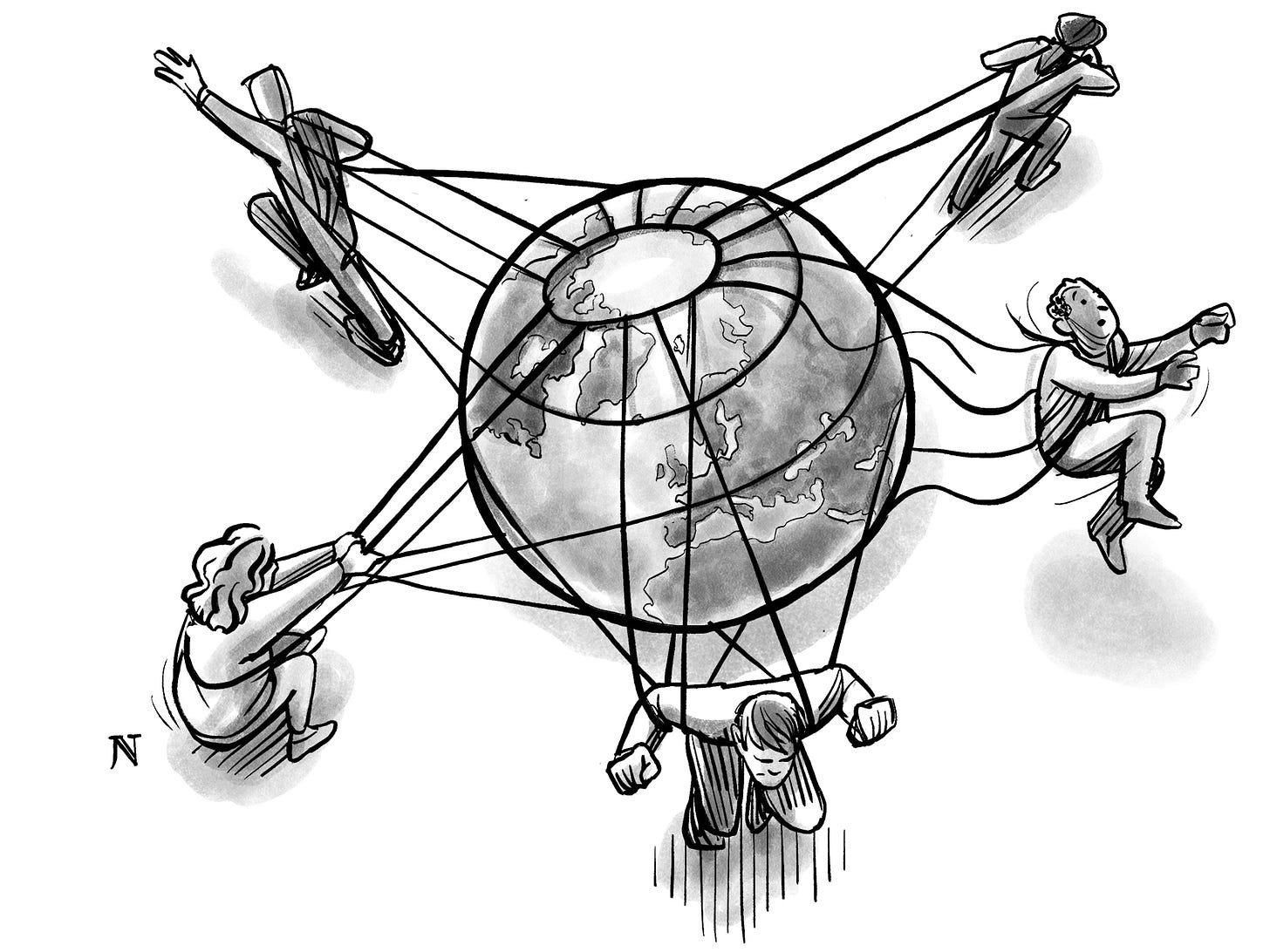
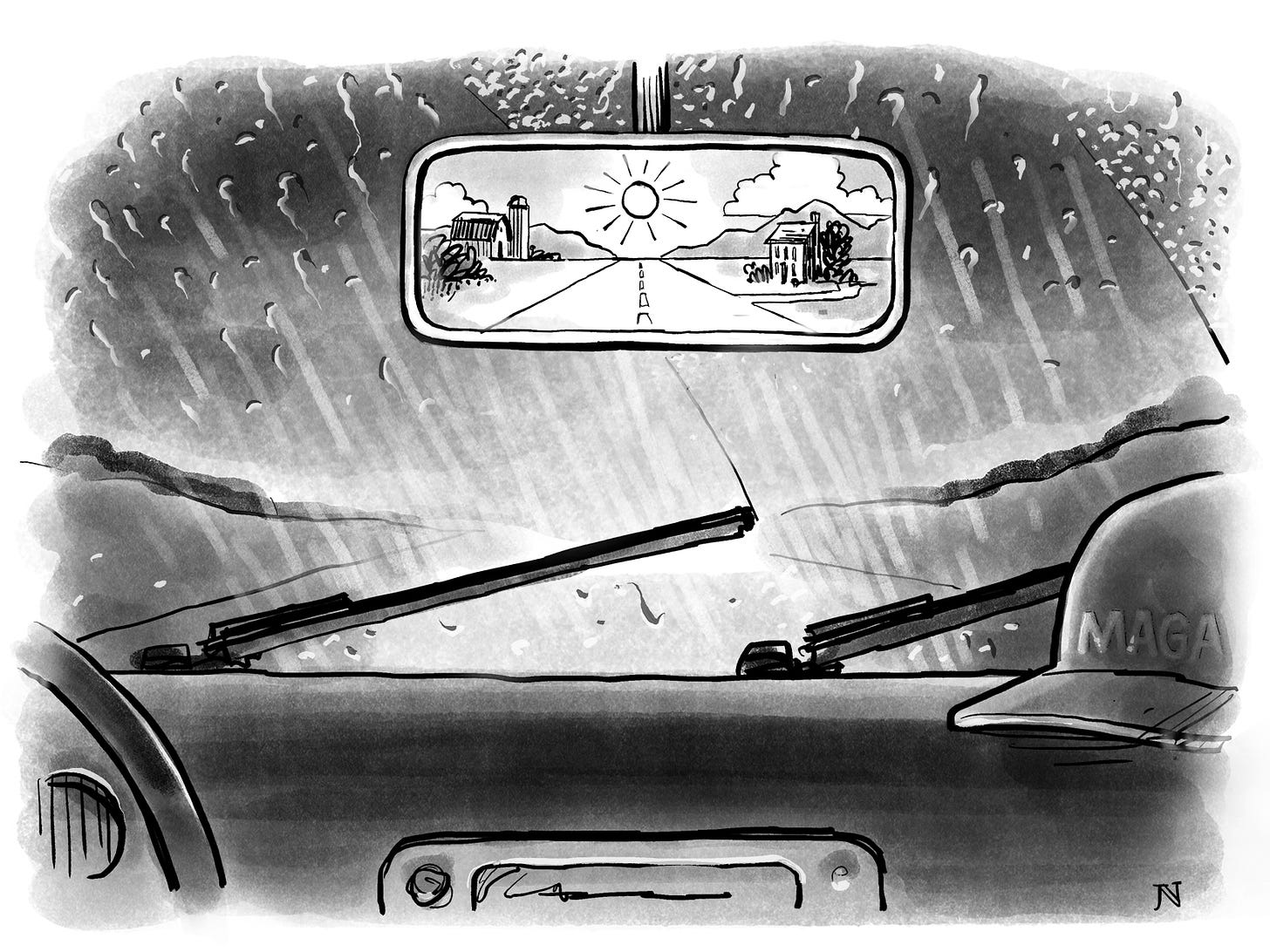
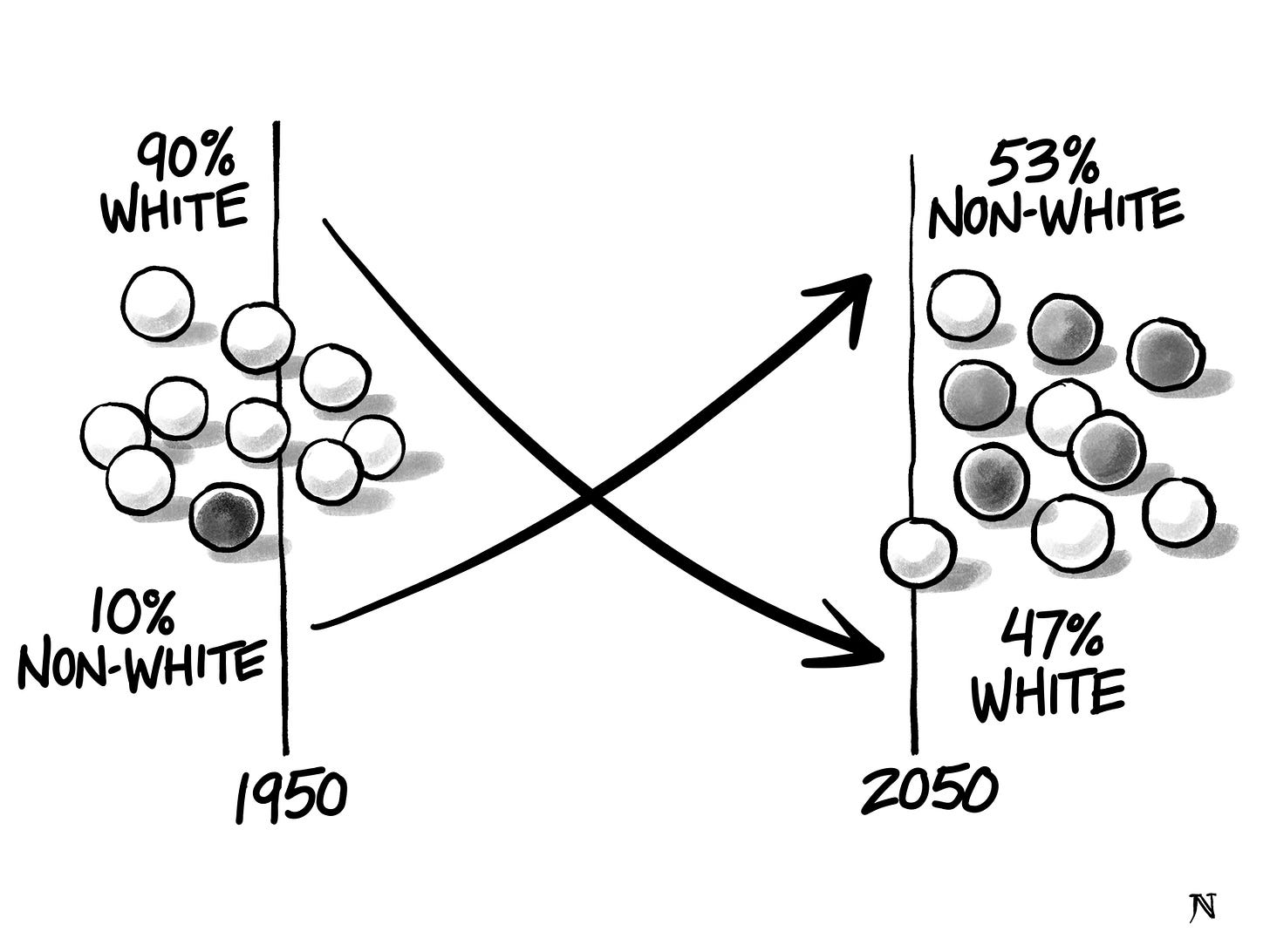
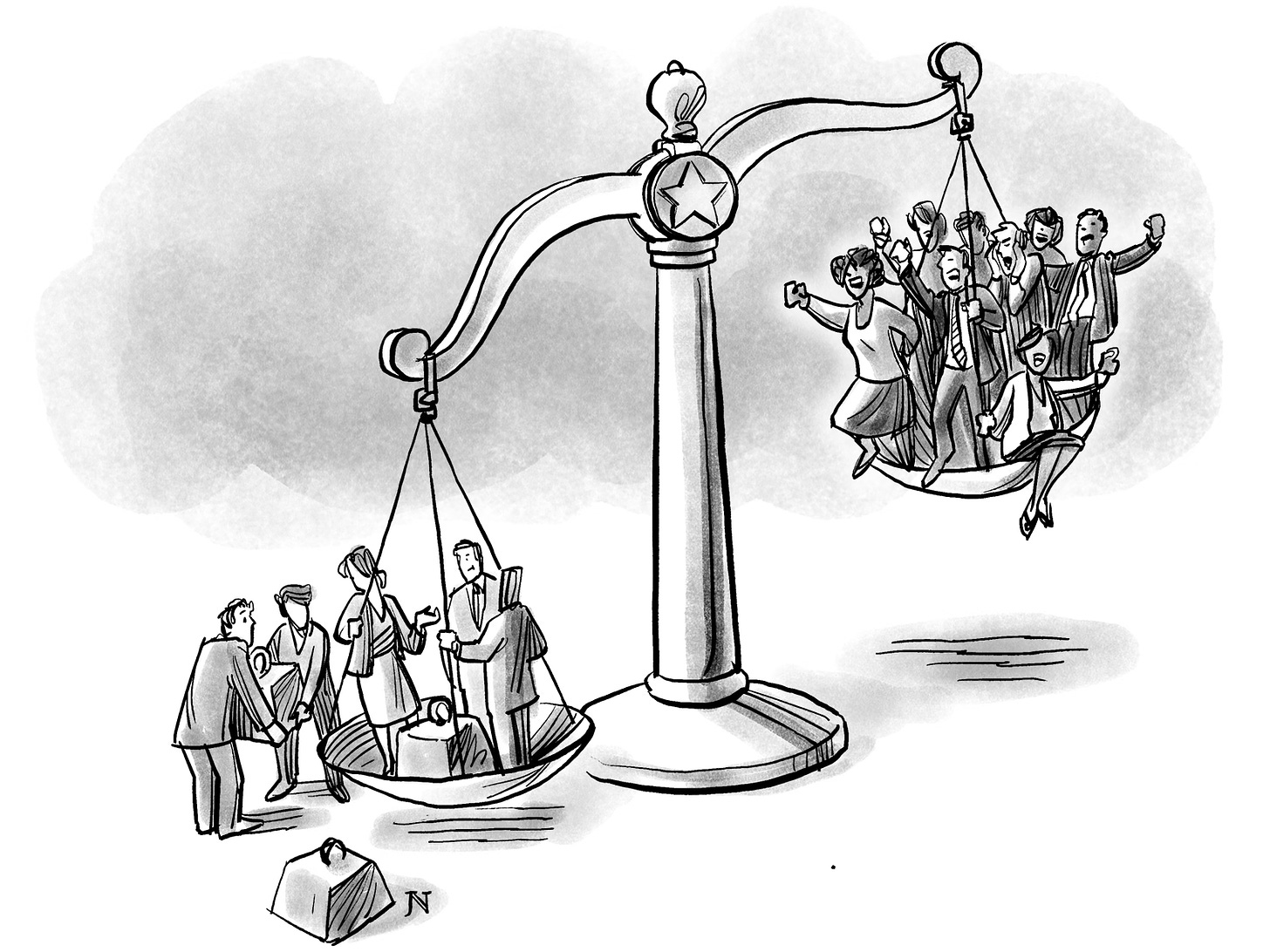
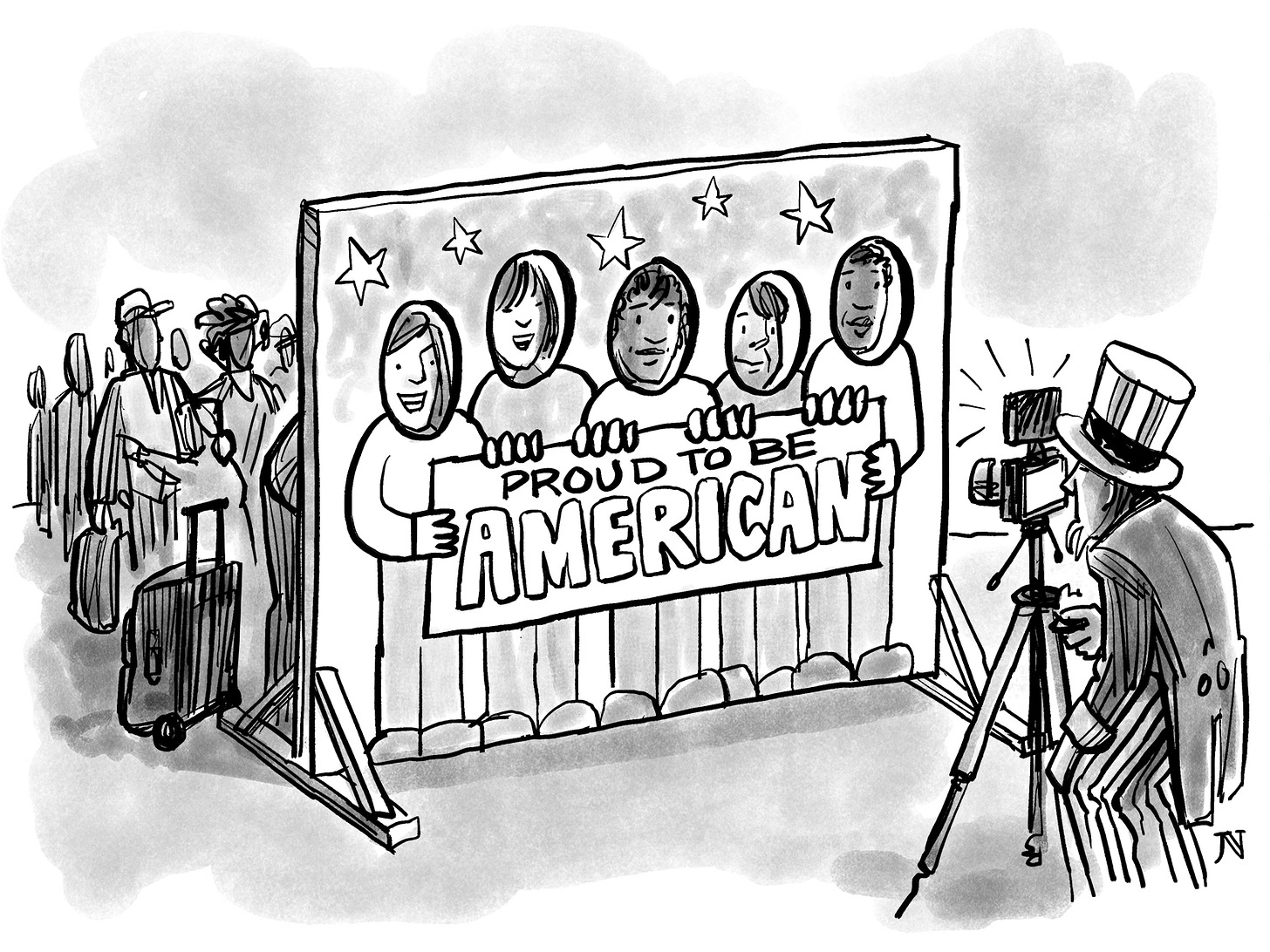
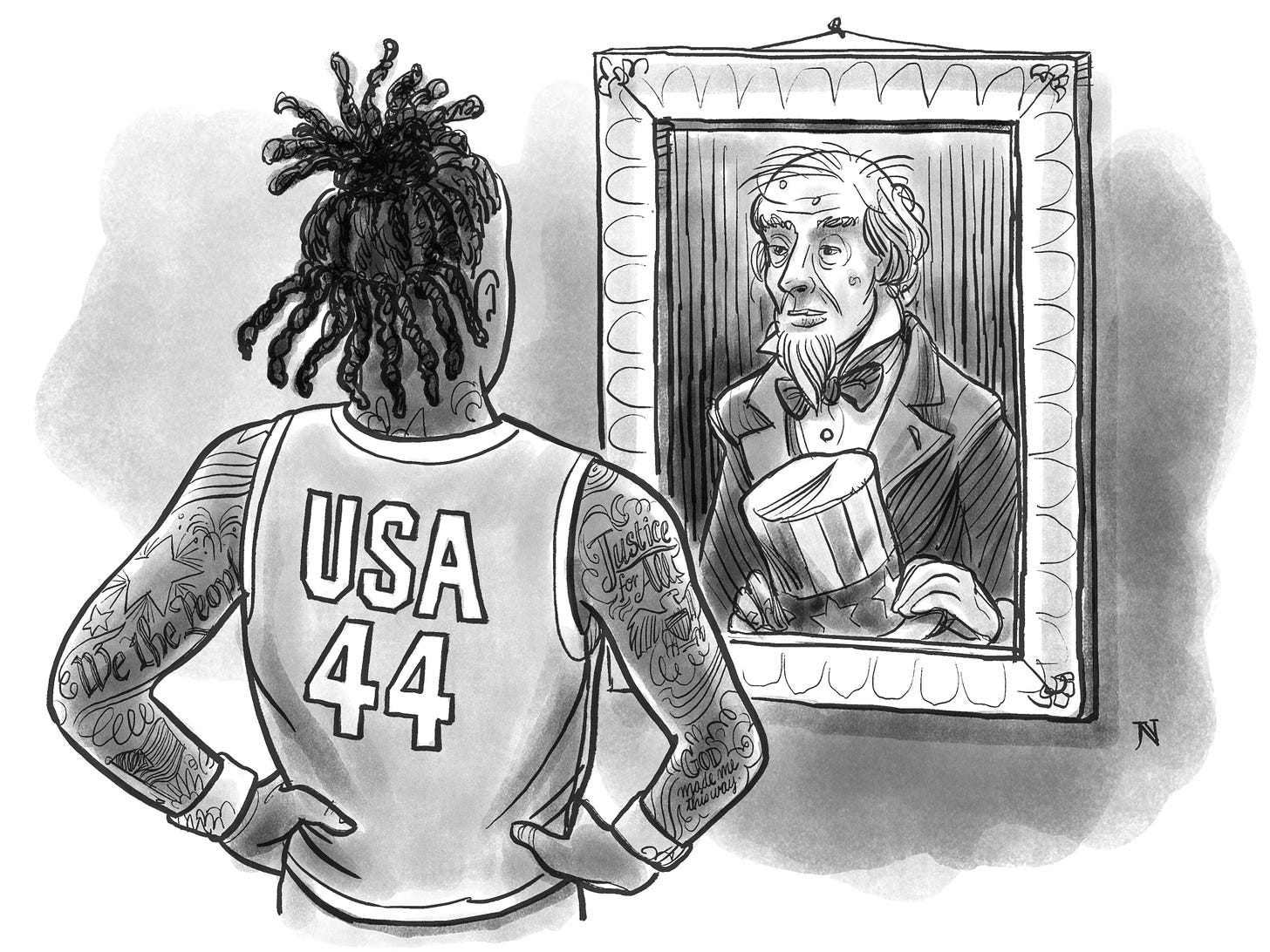

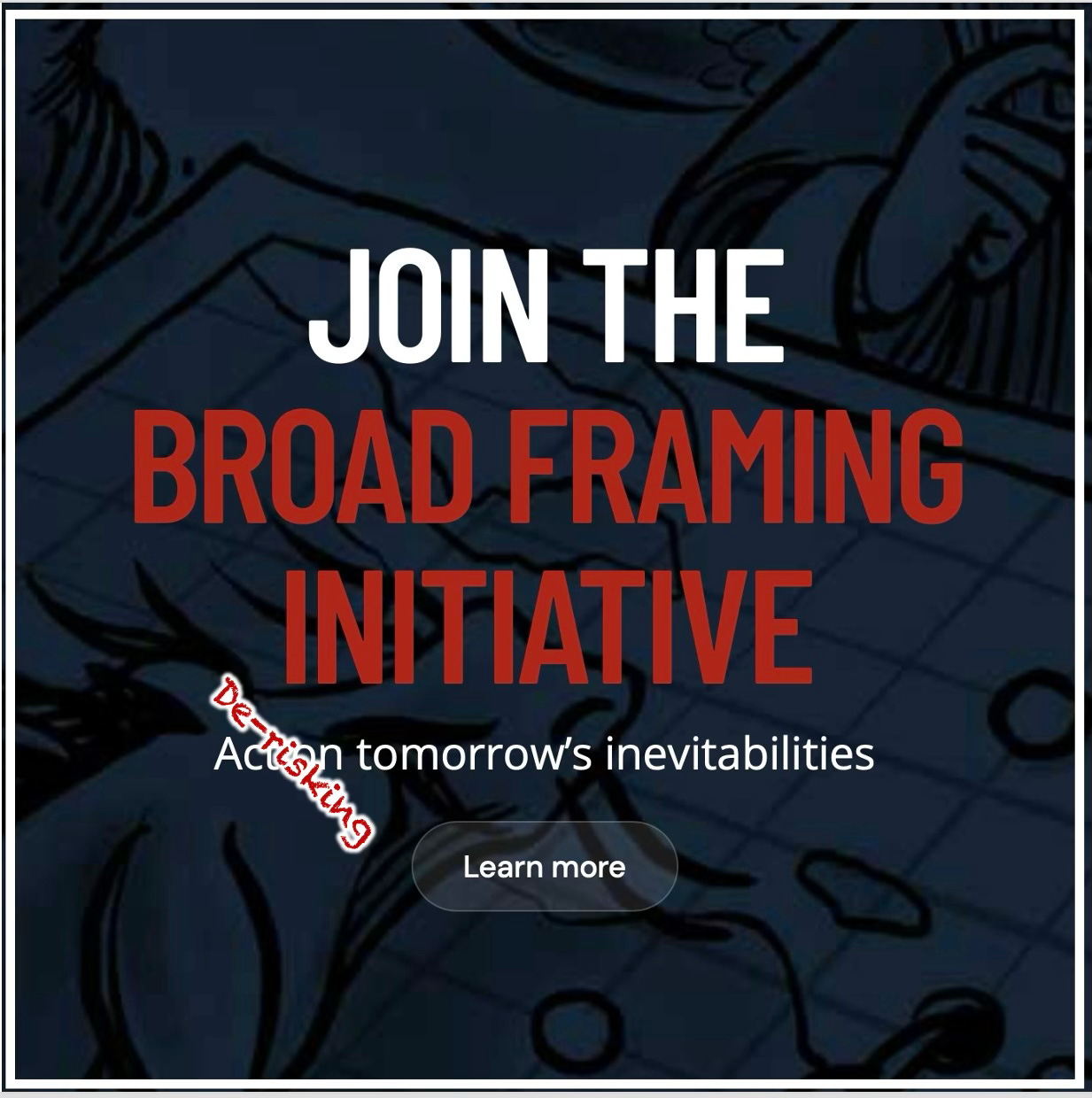
Tom, I always appreciated how your posts combine grand strategizing with deeply personal aspects of your life, going back to your old blog in the Pentagon map days. It makes your writing more authentic and engaging. Glad you found a home on Substack and I look forward to reading more of your posts (as well as the new book which I have just ordered).